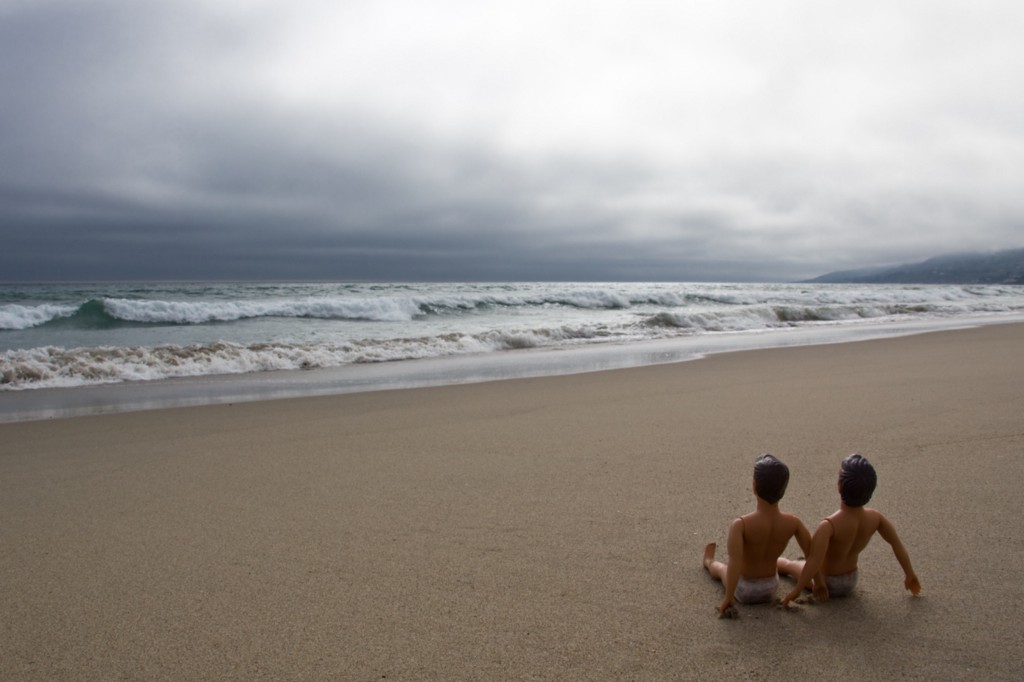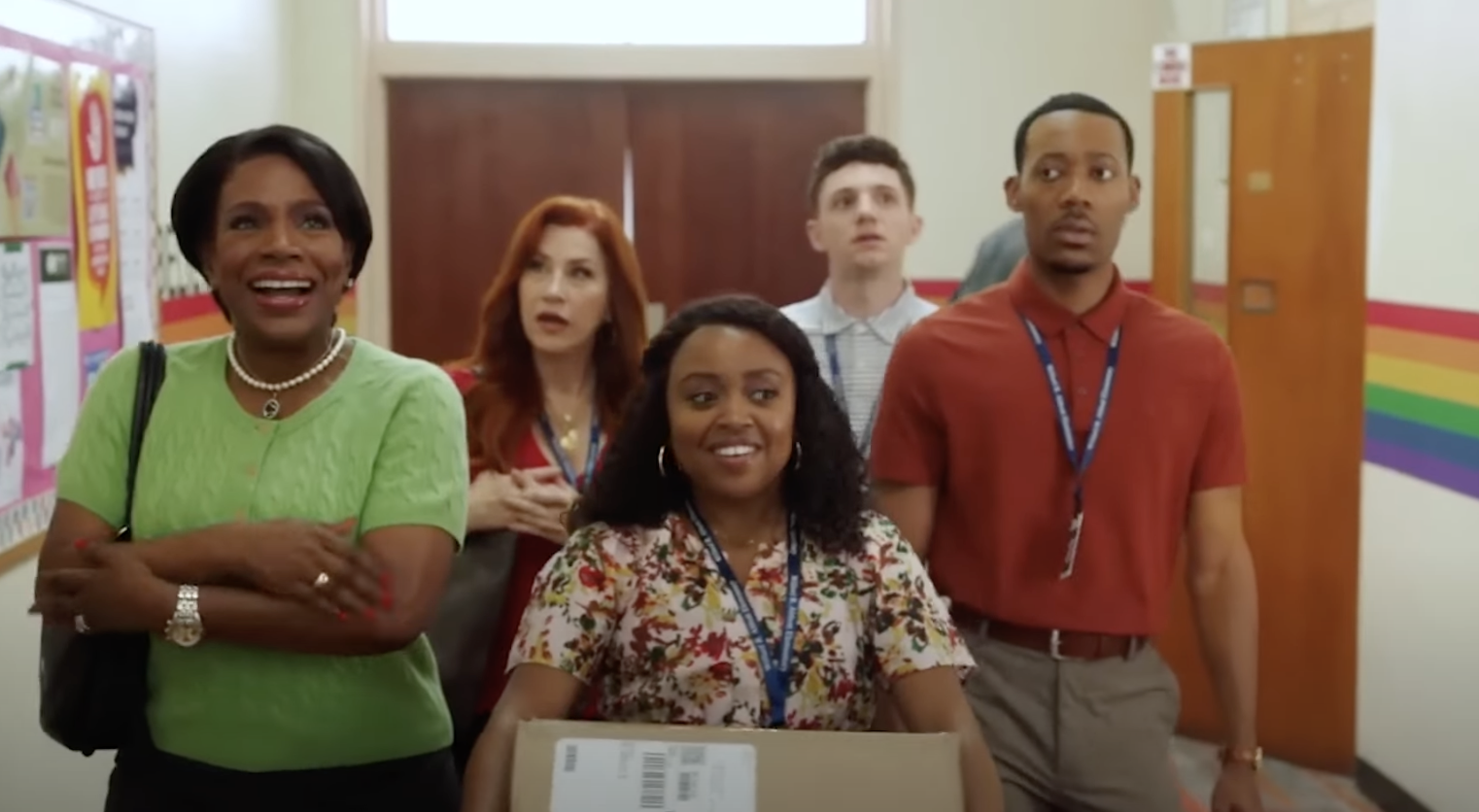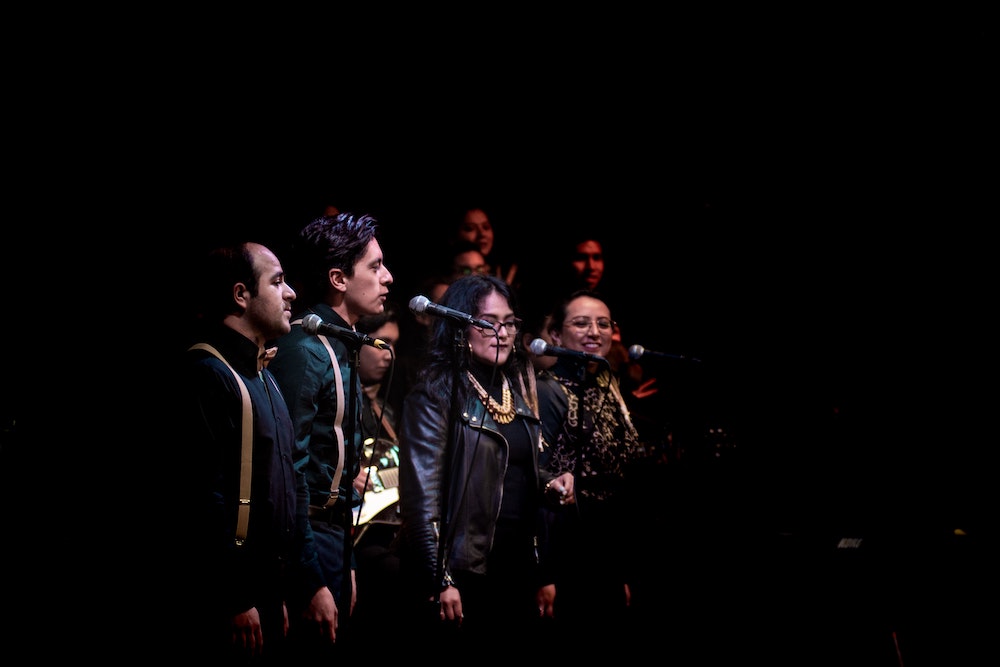Books & Culture
Why Sherman Alexie’s Sexual Misconduct Feels Like a Betrayal
In addition to the women he wronged, Alexie let down the writers of color who needed his help, and the Native writers he eclipsed

I would have believed just one allegation about Sherman Alexie’s sexual misconduct, but the School Library Journal comment section that started it all had six of them (some of which he has non-specifically admitted in his strange apology). NPR reported that ten women approached the news outlet as victims of his harassment, three of whom risked their careers to go on record about these allegations.
My outrage at Alexie’s actions hits me harder than the news of other celebrities who had been accused of similar behavior. It wasn’t just that his writing was beautiful to me. The #MeToo and Time’s Up Movements have proven that magnificent things can be created by terrible men; I’ve already reckoned, many times, with finding out that someone whose work I admire is an abuser in his spare time. But Alexie’s misconduct felt like a personal betrayal because his work has been so personally significant. His work was formative in my ability to recognize and object to racial injustice.
Alexie’s misconduct felt like a personal betrayal because his work has been so personally significant. His work was formative in my ability to recognize and object to racial injustice.
I didn’t read Sherman Alexie’s young adult novel The Absolutely True Diary of a Part-Time Indian until my early twenties. It was assigned for my undergraduate writing seminar at the University of Pittsburgh, and it recontextualized my relationship with a toxic friend in high school. Junior, Part-Time Indian’s Spokane protagonist, has the plucky, curious voice of an irreverent teenager, one that sounded exactly like mine at that age.
Junior loves when his dad sings country songs and jokes about masturbation with his friend. He makes fun of his sister’s taste in romance novels and listens to his girlfriend list the places she’ll travel to once she leaves her small town. After a classroom outburst results in Junior’s suspension, he deals with the same apocalyptic thoughts that plague every teen’s mind when they’re faced with impossible situations: “My hopes and dreams floated up in a mushroom cloud. What do you do when the world has declared nuclear war on you?”
Junior was the first protagonist of color I read in a young adult book who sounded the way I wanted to write, and nothing like how my white high school friend Dara wanted to think of me.
Dara had always been confused by my inability to fit her Asian stereotypes. Over a conversation about my dad’s love of football, Dara stated matter-of-factly that watching football was “not an Asian thing.” When I started dating a white boy, she complained constantly about the loneliness I put her through and referred to the “difficulty” of being in an interracial relationship. She became obsessed with Korean pop music and gushed nonstop about songs I couldn’t sing because I am Filipina-American. To her, I wasn’t the “right” kind of Asian. The last straw came after I received minor accolades for my writing. Dara rallied friends to comfort her, wishing for my future failure. I was supposed to be a sidekick, after all, and she had only ever seen herself as the hero.
Part-Time Indian made me reflect on my time in mostly white writing workshops, writing stories about white characters so I would be taken seriously by white writers.
What I found most compelling about Part-Time Indian is how deceptively simple its premise is. Junior starts high school as an underdog in every way. He’s a poor, disabled new kid at school who’s been bullied all his life. By the end of the novel, Junior has new friends and a beautiful girlfriend, leads his basketball team to the playoffs, and earns the respect of both the communities of (white) Reardan and (Native) Wellpinit. It’s the quintessential All-American coming-of-age story with a Native teenager taking the spotlight in a usually white hero narrative.
Part-Time Indian demonstrated the power of diverse protagonists and made me reflect on my time in mostly white writing workshops, writing stories about white characters so I would be taken seriously by white writers. It was responsible for the first time I shot a death-glare at the white boy in my seminar who repeated ad nauseum how the novel was “only unique because the hero isn’t white,” and the first time I rolled my eyes openly at the white girl who agreed with him while working on her ancient Egyptian mythology adventure novel and didn’t think she needed feedback from anyone of Egyptian descent. Reading and digesting Alexie’s book was also the first time I saw Dara as a mediocre white woman who saw her friend of color as a threat, and the first time I realized that I didn’t need any of these people’s approval to write myself onto the page.
Part-Time Indian allowed me to notice and disavow injustice in my life — and this experience isn’t unique to me. Alexie’s works have long been praised for upending racist assumptions in the literary world, and Alexie has spent his career championing unheard voices across all marginalized communities. Unfortunately, he has disappointed us repeatedly in this powerful role, even before these latest accusations. When Alexie issued a vague, unsatisfying apology in late February regarding the sexual harassment allegations, I found myself screaming at his face on my computer screen: “This isn’t the first time we’ve seen you apologize!”
The last time Alexie apologized publicly was in August 2017, when he announced that he would be cancelling the rest of his book tour for his memoir You Don’t Have to Say You Love Me, citing the depression caused by reliving his mother’s passing in each city he toured. But for me, as an Asian-American woman writer, the most significant apology before the latest accusations came when Alexie was the guest editor of The Best American Poetry 2015. One of the 75 poets he chose for the anthology was revealed to be a white man using the pseudonym Yi-Fen Chou, wearing literary yellowface to take the spot of actual Asian-American poets in order to get published.
In a post on the Best American Poetry blog, Alexie apologized profusely for the pain he caused when his strategy to introduce more underrepresented voices to a large audience backfired. In his apology, Alexie laid out his approach to choosing the anthology selections, breaking down how many other voices he was able to include: “Approximately 60% of the poets are female. Approximately 40% of the poets are people of color. Approximately 20% of the poems employ strong to moderate formal elements. Approximately 15% of the poems were first published on the Internet” and so on.
It was this apology, its tone both defensive of his methods and sincerely appalled at the outcome, that convinced me that Alexie’s determination to bring attention to more marginalized voices was coming from a genuine, empathetic place. At the time, I was an intern for the National Book Foundation, and Alexie was a judge in the Poetry category for the National Book Awards. He helped give an Award to Robin Coste Lewis, a black woman poet whose collection was the first poetry debut to win since 1974.
It’s difficult to dismiss someone who, at least in the public eye, put in the work to create and bring more diverse voices into that world, and yet it’s necessary to recognize we’ve been placing too much significance on him.
I wanted to believe that this win absolved him somewhat, that he knew to take his mistakes to heart and could still use his authority in the literary world to put traditionally unheard voices in front of his own. I hadn’t thought that perhaps it was his authority that exacerbated the Best American Poetry scandal, nor that his authority was an inherent problem that stemmed from the white, patriarchal system that upheld him as the standard against whom other Native writers were measured.
What infuriates and upsets me about these recent allegations is the utter hypocrisy with which Alexie wielded his incredible power and influence within the literary world to prey on young, emerging women writers, some of whom were Native writers. It’s been very difficult for me to dismiss someone who, at least in the public eye, put in the work to create and bring more diverse voices into that world, and yet it’s necessary to recognize we’ve been placing too much significance on him.
Others are having difficulty dismissing Alexie as well. As of this essay, Alexie has evaded the punishments undergone by other authors who have been accused of sexual harassment. Unlike Jay Asher and James Dashner, Alexie has not lost his agent or his publisher. Publishers Weekly interviewed a number of independent bookstores to ask whether they would continue to stock his books, considering that Alexie himself launched the Indies First campaign to support such bookstores. There was no strong consensus among the bookstores interviewed about what to do in the wake of these allegations. The harshest consequences that Alexie has faced have been self-inflicted: he has declined the ALA 2018 Andrew Carnegie Medal for Excellence in Nonfiction and has requested that his publisher postpone the paperback release of You Don’t Have to Say You Love Me.
The essence of my struggle, and surely many others’, is in navigating the complexity of Alexie’s immense power and how we enabled him to exercise that power. We stand to lose much more in a conversation that focuses only on Alexie’s disavowal from the literary community and not how we, that literary community, allowed him to consolidate power in a way that hurt Native women writers.
The pain of these allegations, while repugnant and unforgivable no matter how powerful and talented Alexie is, wouldn’t have been so acute had we given more room to other Native writers.
We’ve let this apology cycle play out before, and we’ll see it happen again unless we learn how to stop concentrating power among just a handful of writers from marginalized backgrounds. Had it not been for our willing, enthusiastic praise of Alexie’s efforts in fighting racist norms, this labor could have been distributed among many other systemically silenced voices, and we would all have been better for it. The pain of these allegations, while repugnant and unforgivable no matter how powerful and talented Alexie is, wouldn’t have been so acute had we given more room to other Native writers.
This is part of the ugliness of living under a white patriarchal system as a person of color: when we’ve been taught to listen to white authority all our lives, it’s often difficult to hear other people of color from communities that aren’t yours. Alexie understood this dynamic well, but he betrayed our trust and hurt a community whose voices we need. However sincere he was about creating a more diverse literary landscape through these conversations between different communities of color, this work can and must continue without him.
In the midst of this scandal, I’ve found myself returning to the time when I first read Part-Time Indian and felt recognized. My nostalgia is burdened with the fact of Alexie’s harassment, but more than that, I wonder why it took until adulthood for me, a person of color, to feel connected to a young character of color. The lessons in Part-Time Indian were ones I didn’t have access to until I had already been inundated with experiences that taught me I wasn’t important enough to read about. In perpetuating Alexie’s legacy, even in infamy, by failing to question the way he rose to power, I let his victims and the communities he hurt feel the same way I did before reading his book: ignored and insignificant.
I wonder why it took until adulthood for me, a person of color, to feel connected to a young character of color.
Rather than waiting for apologies from my heroes, I need to reexamine whose voices I myself have felt were worth reading and who I’ve left out. I don’t plan on reading Alexie’s work anymore, nor recommending it to friends. Part of my reasoning is because of these allegations, and part is simply because I should’ve been reading more widely all along. Instead of viewing this as a loss to myself, I see this as an opportunity to look down the path that Alexie should have provided to other Native writers who create outside the comfort zone of the white establishment — writers whose stories are far riskier, far bolder, far more reflective of that community’s myriad narratives.








